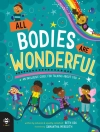Winner of the William James Book Award
Winner of the inaugural Expanded Reason Award
A wide-ranging exploration of the role of childhood experiences in adult morality.
Neurobiology and the Development of Human Morality advances the field of developmental moral psychology in three key ways. First, it provides an evolutionary framework for early childhood experience grounded in developmental systems theory, encompassing not only genes but a wide array of environmental and epigenetic factors. Second, it proposes a neurobiological basis for the development of moral sensibilities and cognition, describing ethical functioning at multiple levels of complexity and context before turning to a theory of the emergence of wisdom. Finally, it embraces the sociocultural orientations of our ancestors and cousins in small-band hunter-gatherer societies—the norm for 99% of human history—for a re-envisioning of moral life, from the way we value and organize child raising to how we might frame a response to human-made global ecological collapse.
Integrating the latest scholarship in clinical sciences and positive psychology, Narvaez proposes a developmentally informed ecological and ethical sensibility as a way to self-author and revise the ways we think about parenting and sociality. The techniques she describes point towards an alternative vision of moral development and flourishing, one that synthesizes traditional models of executive, top-down wisdom with “primal” wisdom built by multiple systems of biological and cultural influence from the ground up.
Sobre o autor
Allan Schore, Ph D, is on the clinical faculty of the Department of Psychiatry and Biobehavioral Sciences, UCLA David Geffen School of Medicine, and at the UCLA Center for Culture, Brain, and Development. He is the recipient of the American Psychological Association Division 56: Trauma Psychology ‘Award for Outstanding Contributions to Practice in Trauma Psychology’ and APA’s Division 39: Psychoanalysis ‘Scientific Award in Recognition of Outstanding Contributions to Research, Theory and Practice of Neuroscience and Psychoanalysis.’He is also an honorary member of the American Psychoanalytic Association. He is author of three seminal volumes, Affect Regulation and the Origin of the Self, Affect Dysregulation and Disorders of the Self and Affect Regulation and the Repair of the Self, as well as numerous articles and chapters. His Regulation Theory, grounded in developmental neuroscience and developmental psychoanalysis, focuses on the origin, psychopathogenesis, and psychotherapeutic treatment of the early forming subjective implicit self. His contributions appear in multiple disciplines, including developmental neuroscience, psychiatry, psychoanalysis, developmental psychology, attachment theory, trauma studies, behavioral biology, clinical psychology, and clinical social work. His groundbreaking integration of neuroscience with attachment theory has lead to his description as ‘the American Bowlby’ and with psychoanalysis as ‘the world’s leading expert in neuropsychoanalysis.’ His books have been translated into several languages, including Italian, French, German, and Turkish.












